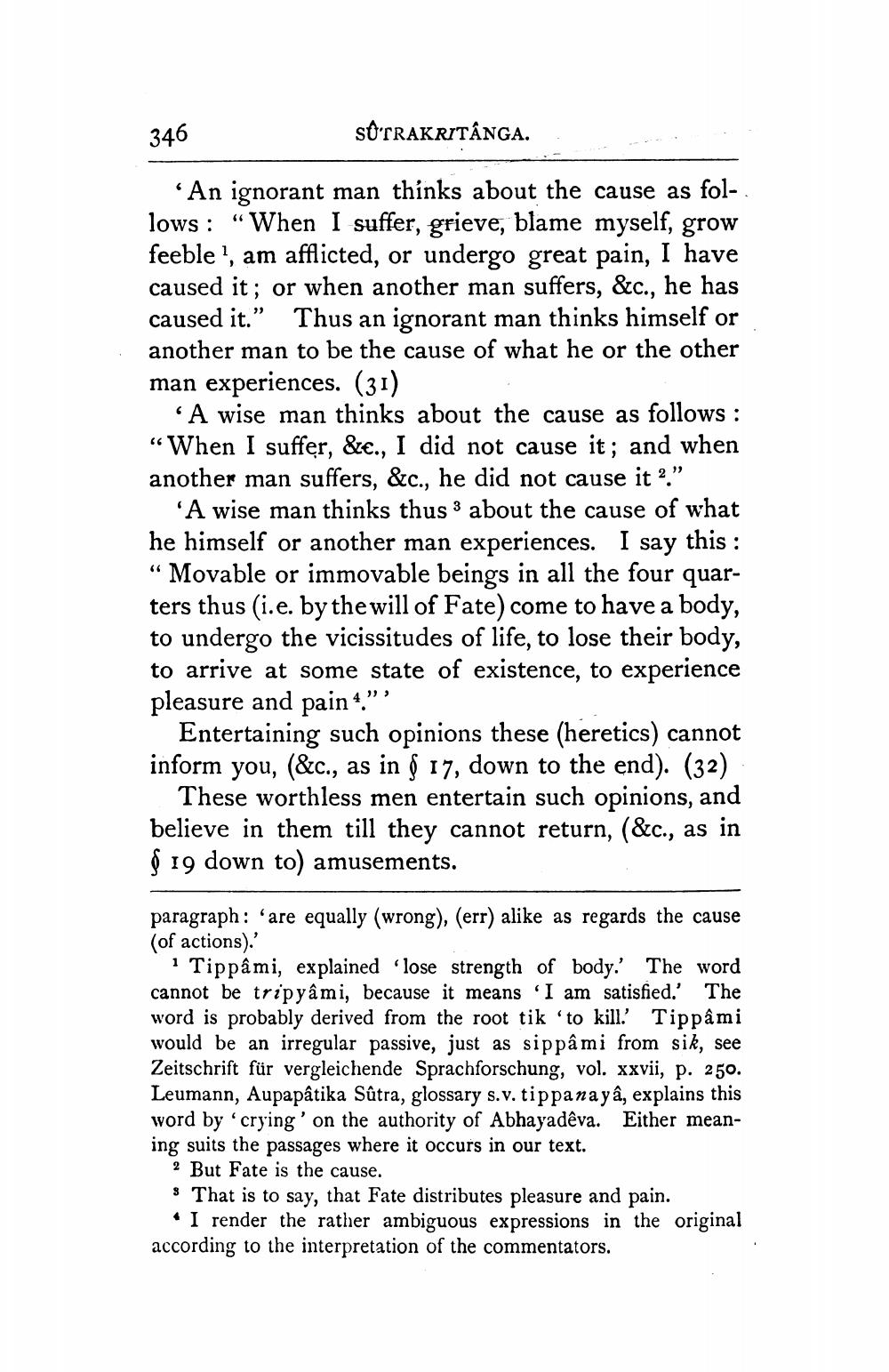________________
346
SÜ'TRAKRITÂNGA.
An ignorant man thinks about the cause as follows : “When I suffer, grieve, blame myself, grow feeble !, am afflicted, or undergo great pain, I have caused it; or when another man suffers, &c., he has caused it.” Thus an ignorant man thinks himself or another man to be the cause of what he or the other man experiences. (31)
A wise man thinks about the cause as follows: “When I suffer, &c., I did not cause it; and when another man suffers, &c., he did not cause it ?."
'A wise man thinks thus 3 about the cause of what he himself or another man experiences. I say this : "Movable or immovable beings in all the four quarters thus (i.e. by the will of Fate) come to have a body, to undergo the vicissitudes of life, to lose their body, to arrive at some state of existence, to experience pleasure and pain 4."*
Entertaining such opinions these (heretics) cannot inform you, (&c., as in § 17, down to the end). (32)
These worthless men entertain such opinions, and believe in them till they cannot return, (&c., as in § 19 down to) amusements.
paragraph: ‘are equally (wrong), (err) alike as regards the cause (of actions).'
1 Tippâmi, explained 'lose strength of body. The word cannot be tripyâmi, because it means 'I am satisfied.' The word is probably derived from the root tik 'to kill.' Tippâmi would be an irregular passive, just as sippâmi from sik, see Zeitschrift für vergleichende Sprachforschung, vol. xxvii, p. 250. Leumann, Aupapâtika Sútra, glossary s.v. tippanayâ, explains this word by crying' on the authority of Abhayadêva. Either meaning suits the passages where it occurs in our text.
2 But Fate is the cause. s That is to say, that Fate distributes pleasure and pain.
. I render the rather ambiguous expressions in the original according to the interpretation of the commentators.




